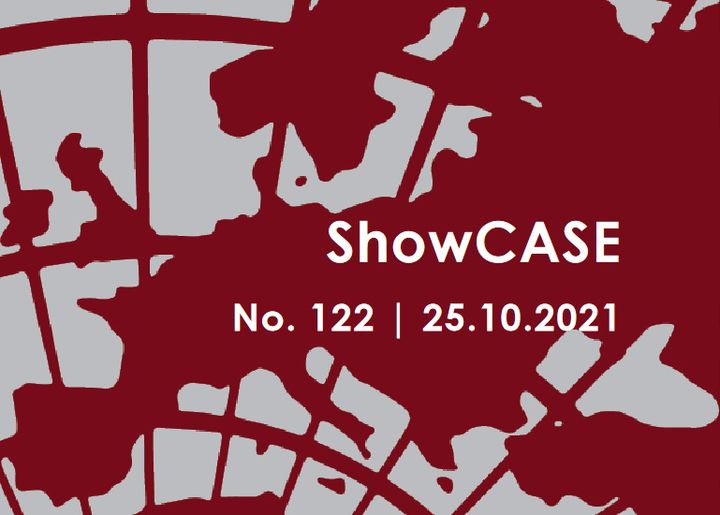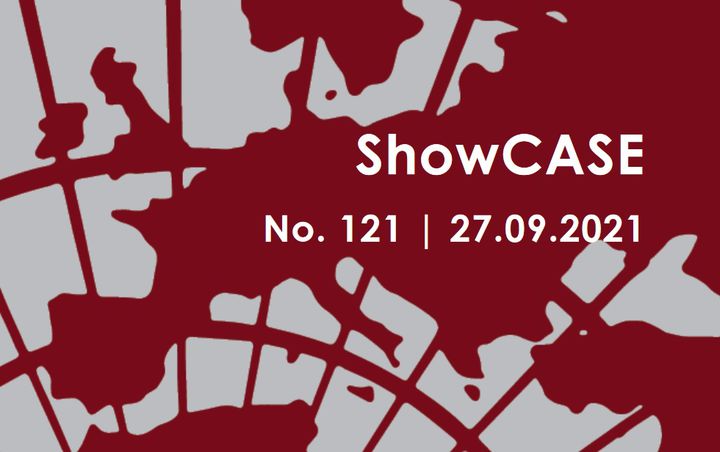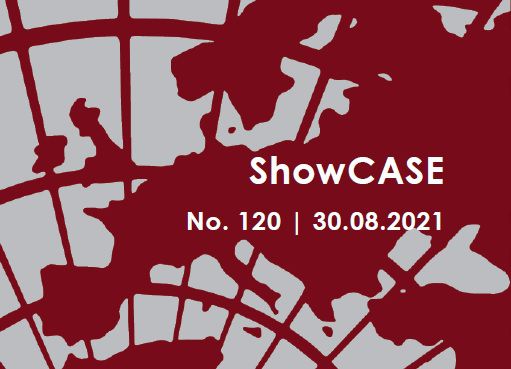Zagłosuj na nasz projekt: „Miasto Gąbka”!
Z przyjemnością informujemy, że projekt Miasto Gąbka został zakwalifikowany do kolejnego etapu programu E.ON Connects Energia dla Klimatu , który obejmuje głosowanie publiczne na wybrane projekty. Koncepcja miasta-gąbki to lokalne zatrzymywanie w...
CASE poszukuje trenerki/trenera
W związku z realizacją projektu PRZYSZŁOŚĆ DLA WSZYSTKICH - Rozwijanie Współpracy Międzypokoleniowej poprzez Umiejętność Myślenia o Przyszłości fundacja CASE szuka trenerki/trenera. Informacja o fundacji i projekcie: CASE - Centrum Analiz Społecz...
Koszty i korzyści z przystąpienia Polski do strefy euro - wykład dostępny!
Przed nami kolejna odsłona projektu 20-lat Polski w Unii Europejskiej. Oto prof. Michała Brzoza-Brzezina z wykładem: Koszty i korzyści przystąpieni...
Wykład o efektach polityk Unii Europejskiej w Polsce już dostępny!
Świętujemy 20 lat Polski w Unii Europejskiej! Zapraszamy do odsłuchania wykładu prof. dr hab. Grzegorza Gorzelaka pt. Terytorialne (i nie tylko) ef...
Eksperci apelują: Europejskie rolnictwo może skorzystać na integracji Ukrainy z UE
Ukraina ma ogromny potencjał rolniczy: 42 milionów hektarów żyznej ziemi może znacząco wzmocnić pozycję Unii Europejskiej na światowym rynku żywnoś...
Podsumowanie 180. Seminarium mBank-CASE
Seminarium "BNPL (Buy Now - Pay Later) - odroczona płatność - nowa metoda finansowania zakupów" zorganizowane przez mBank i CASE, zgromadziło wiodą...
Najnowsze publikacje
Nadchodzące wydarzenia
Trwające projekty
Online CASE CPI 99.90
Online CASE CPI jest innowacyjnym indeksem mierzącym dynamikę cen konsumenta na polskim rynku, opartym w całości o dane pochodzące z internetu. Online CASE CPI jest tworzony poprzez uśrednienie cen produktów i usług w okresie czterech ostatnich tygodni i przyrównanie ich do cen tych samych dóbr w czterech poprzedzających tygodniach. Indeks aktualizowany jest co tydzień.
The European Commission adopted the Blue Growth Strategy in 2012 in order to harness the potential of Europe’s oceans, seas and coasts for growth and jobs. Since the adoption of the strategy, the Blue Economy has become a driver for Europe’s welfare and prosperity. Europe’s maritime economy is expected to become an even more significant source of jobs and growth in the years to come. However, despite concerted efforts by the European Union to increase funding for Blue Economy actors, access to funding with acceptable terms remains a key obstacle for innovative businesses. This study addresses the funding gap for innovative and sustainable business sectors in a Blue Economy that makes up 5% of the EU's GDP. The European Union has increasingly been working with partners such as the EIB Group to look into ways to stimulate investment in the Blue Economy, but despite the progress achieved, there is still room for improvement in financial support for Blue Economy actors.
This report makes recommendations on closing the remaining funding gaps through a Blue Economy Investment Platform (BEIP). With the implementation of such a BEIP, access to funds for companies working in under-funded areas of the Blue Economy should be improved. Funding gaps for sustainable businesses that provide inclusive growth and employment was therefore given particular attention. The recommendations made in the report seek to contribute directly to the implementation phase of the European Commission’s mobilisation of funds in a way that leverages additional investment from the public and private sectors. An analysis of the existing requirements of market participants through direct engagement and a careful evaluation of possible options are at the core of this recommendation paper.
Our recommendations are based on strong engagement with the maritime SME community and a detailed analysis of the funding needs of maritime SMEs. This was carried out by the Acacia team of SME Finance Experts during the first half of 2018. The project team was tasked with the development of a Blue Economy pipeline of companies and projects, which led to the identification of 400 companies based on a database compiled by DG Mare and EASME and additional research by the team. The team elaborated a longlist of 100 eligible companies of the sector which was then further filtered down to a series of 35 Investment Dossiers which showcased some of the most promising companies. With the help of information directly from market participants on funding gaps, the team was able to draw overall conclusions and come up with recommendations for the BEIP. Although not part of the main activity, a number of funding actors considered as particularly important were also consulted within the framework of the project.
The study was prepared for the European Commission.
MEDIUM blog
CASE w mediach
Program Partnerstwa Korporacyjnego
CASE invites businesses to join its Corporate Membership Program and help support an independent Polish think tank. The benefits of the program for businesses include: Undertaking common scientific projects; Exchanging knowledge and benefiting from CASE s vast experience; Engaging businesses in public debates on crucial matters of economic policy; Creating networking opportunities between gover...






